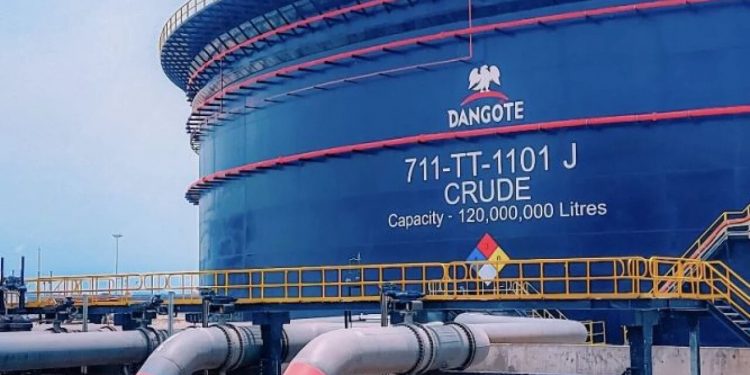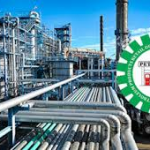The Federal Executive Council has mandated the Nigerian National Petroleum Corporation (NNPC) to sell crude oil to local refineries, including the Dangote Refinery, to support its operations.
Dangote Refinery Operations:
– The Dangote Refinery is nearing steady-state operations.
– It requires approximately 15 crude cargoes per month, with an annual supply cost of $13.5 billion.
– NNPC will supply four crude oil cargoes monthly, while the rest will be sourced from international traders.
Rationale:
Foreign Currency Strain:
– Current transactions in USD are straining Nigeria’s foreign currency liquidity.
– A strategic intervention is necessary to leverage the Dangote Refinery to stabilize the Naira exchange rate and restore price stability.
Proposed Measures:
- Denomination in NGN:
– Local refineries’ crude oil purchases from NNPC to be denominated in NGN at a fixed exchange rate for a minimum period of six months.
– Refined product sales to approved local petroleum marketing companies are to be conducted in NGN at the same fixed exchange rate.
- Settlement Bank Involvement:
– A settlement bank, such as Afreximbank, to facilitate trades by providing guarantees to NNPC to cover the payment risk of local refineries and to Nigerian commercial banks for the payment risk of Petroleum Marketing Companies.
Benefits:
Reduction in USD Needs:
– Eliminates the need for international letters of credit, saving significant amounts of USD.
– Potential annual savings of $7.32 billion, representing 94% reduction in foreign exchange reserves pressure.
– Annual savings of $79 million in LC costs through Afreximbank’s payment undertakings.
Stabilization of Petroleum Prices:
– Fixed exchange rate for crude oil and refined products stabilizes pump prices.
– Lower petroleum prices will reduce transportation costs, and food price inflation, and positively impact interest rates and USD/NGN exchange rates.
Market Independence:
– Aims to eliminate government intervention in managing domestic petroleum prices.
– Facilitates competitiveness and market predictability and stability.
Economic Stability:
– Can be replicated for other refineries, facilitating the trade of 445,000 barrels reserved for domestic consumption.
– Ensures energy security and strategic reserves at tolerable prices, driving improved economic stability.
Dr. Zacch Adedeji, Special Adviser to the President on Revenue, emphasized that this approach will lead to substantial savings in foreign currency, reduce trade finance costs, stabilize petroleum product prices, and drive market independence, thereby fostering a more stable and predictable economic environment.










